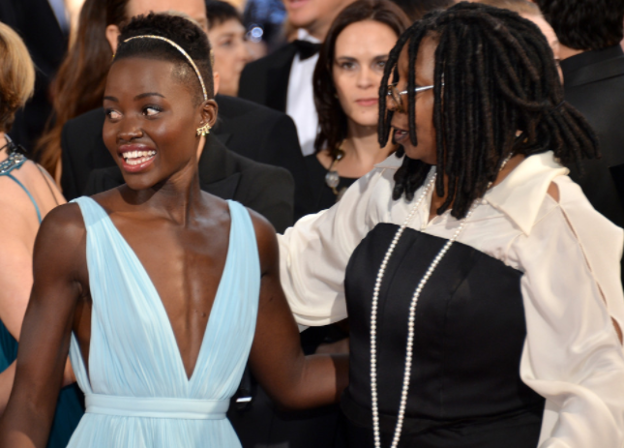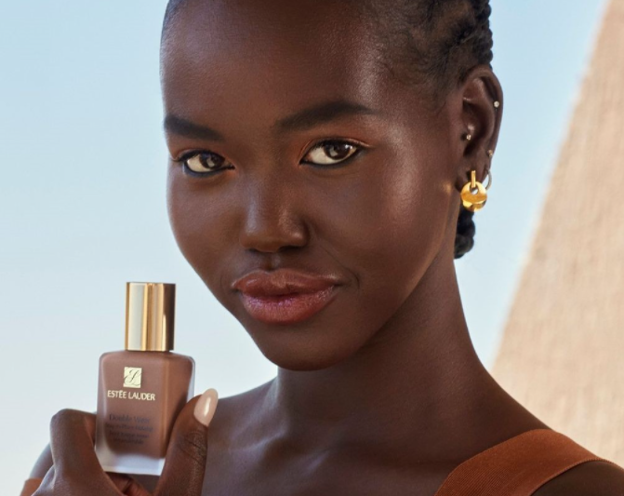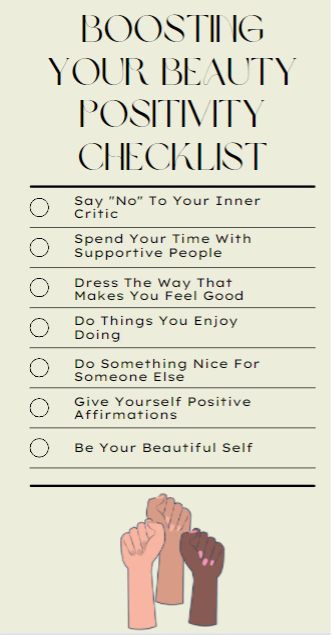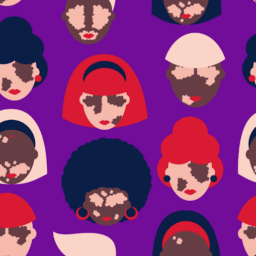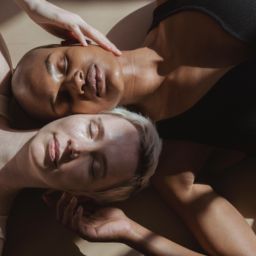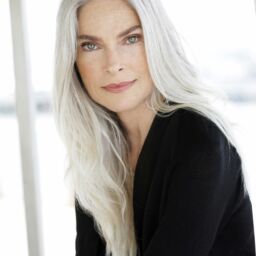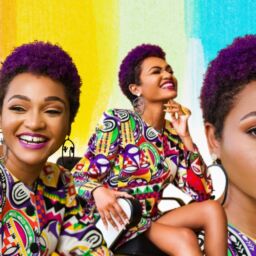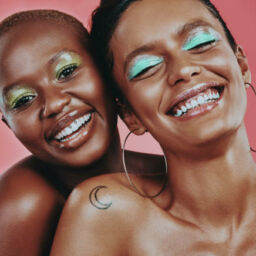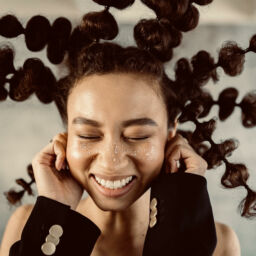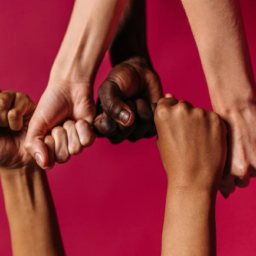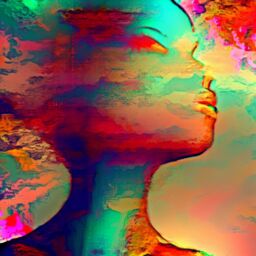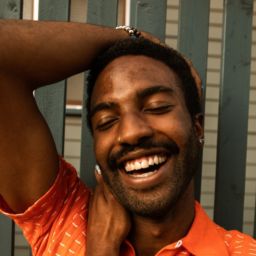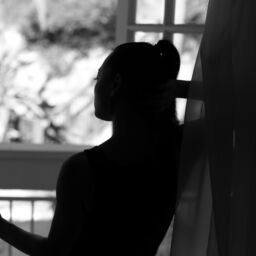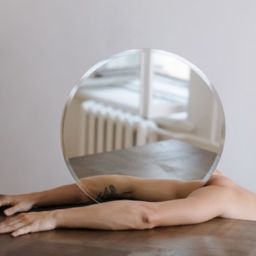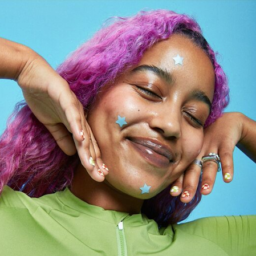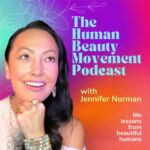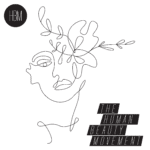
We are all works of art – expressions of beauty, creativity, style, and living energy. Our bodies, imperfections, and personalities are what make us unique. The concept of “Beauty Positivity” extols these ideas, advocating that there is nothing more beautiful than someone being his, her or their true, unfiltered self. Beauty Positivity has finally garnered enough momentum to sweep into mass consciousness. The definition of Beauty Positivity is simple: love yourself, be yourself, and feel unabashedly confident in who you are.
At The Human Beauty Movement (The HBM), we believe every human being on this planet matters. Not everyone, however, has had the opportunity to discover his/her/their own true sense of self, and that’s why we’d like to be a guiding light. Our role is to help sow those potent seeds of self love. Our platform provides nourishment of that love through radical inclusivity, allyship, and guidance for the mind, body, and soul. To us, Beauty Positivity isn’t a business, it’s a movement.
Beauty Standards and Body Positivity
The standards of beauty, as determined by our society, have changed dramatically over the past decades. It’s easier than ever for women to see enlightening, honest posts from real women on Tik Tok and Instagram. Businesses are also catching on to Beauty Positivity with diverse casting and unretouched social media images. The callout, though, is that many businesses seek primarily to capitalize (i.e., profit), off the appearance of Beauty Positivity. Intentions have a way of manifesting into the physical, which is why complete transparency is so important to us.
First, let’s talk about Body Positivity. “Body Positivity” came to the scene in the 1960s as a radical ideology that included public anti-discrimination protests and anti-capitalist advocacy against the diet and beauty industry. The message was to honor women’s bodies and love them unconditionally despite the barrage of cultural messaging to eliminate flaws and desire physical perfection at any cost.
More recently, mass acceptance of Body Positivity has paved the way for the development of broader Beauty Positivity. Now, physical flaws are not as often painted by the media as leftist, lazy, or loathsome. The consequence of shaming men and women for falling short of unrealistic physical aspirations has had far too severe an impact on mental and emotional well-being.
Source: Forbes
Representation in the Media
Representation in the media, and its importance, is not a new topic (#OscarsSoWhite). Times are fortunately changing. Representation is finally coming to the forefront, and we’re seeing greater diversity on our screens.
In 2017, for example, Donald Glover gave a shout out during his Golden Globe acceptance speech to Atlanta-based hip hop group Migos and its new single Bad and Boujee. The song’s plays on Spotify shot up +243%.
Lupita Nyong’o felt that she could have an acting career, because she was inspired by Whoopi Goldberg in The Color Purple. Thirty years before that, Goldberg started her acting career, because she was inspired by watching Nichelle Nichols on Star Trek.
LGBTQ+ representation is now normalized as well. Shows like Julie and the Phantoms and Andi Mack are even bringing the topic to children’s shows. Additionally, positive LGBTQ+ representation in the media is saving lives. One teenage girl saw Alex, a gay character on Supergirl, come out and still be loved by her family and peers. It changed her life and gave her a will to live as her true self.
Representation matters. It creates powerful and relatable role models, along with providing sources of inspiration. It challenges the status quo, and by doing that, it brings fresh ideas to the table. Giving a voice to minorities dismantles harmful stereotypes and misconceptions, allowing for more accurate stories to be told.
Pictured: Lupita Nyong’o and Whoopi Goldberg Source: Zimbio
Diversity in the Beauty Industry
We believe diversity is a key aspect of beauty and that inclusivity must be an expectation, not a luxury. In 1974, Beverly Johnson was the first African American woman to grace the cover of American Vogue. Since Beverly’s appearance in the magazine, beauty and fashion brands have come a long way to broaden human representation.
The beauty industry has been quick as of late to become more inclusive. The call for change on social media and the increasing importance of global markets have resulted in the beauty industry catering to customers of all skin tones. Fenty Beauty by Rihanna, for example, has been praised for its 40-foundation collection. Other popular brands, such as Lancome and MAC, now offer a variety of foundations and concealers that suit many different skin tones.
Indie brands including Fluide, Thrive Cosmetics, and Morphe, have been working to diversify their ads and products. Fluide caters to gender-fluid and gender-nonconforming communities with an ethos that beauty is malleable, while Thrive Cosmetics creates makeup especially safe for women battling cancer. Morphe was awarded the 2019 Essence Best in Black Beauty Award and has a shade range that matches all skin tones.
Estée Lauder, another huge name in the beauty industry, launched the Equity and Engagement Center of Excellence (COE) in March 2021 to reach its diverse customers across 150 countries. The brand also features models of all skin tones, and their fan-favorite foundation – Double Wear – has 55 shades across different undertones.
The Estée Lauder Companies President and CEO, Fabrizio Freda, mentions, “We are deeply committed to doing even more to facilitate a culture of equity, inclusion, and belonging within our company and our communities.”1
It’s no secret that diverse campaigns have been integral to pushing the agenda of equality and diversity within the beauty industry. People are learning to be more mindful of each other, despite their differences. Instead of eradicating those differences, though, we are finally beginning to celebrate them.
Source: Estée Lauder Instagram
Changing Perceptions
Feeling comfortable in your skin can be difficult, even if you see models and actors sporting similar traits to yours. The world might be more accepting, but your relationship with yourself is deeply personal and often private. It may not be as easy to accept yourself as you are despite any shifts in society.
Vivian Diller, Ph.D., a New York psychologist and author of Face It: What Women Really Feel as Their Looks Change, mentions that “real beauty is now a welcome message for many women. While the shift in society has been slowly building, we’re witnessing a sea change in how beauty is viewed in our culture. It’s about to become a revolution.”3
Diller also touches on the common need we have of seeking validation and offers suggestions for empowering oneself to arrive at self acceptance. She indicates that your perception of yourself is linked to your inner dialogue.
“Listen to your inner dialogue and hear what it’s saying,” Diller explains. “Start shifting it like you would talk to your daughter or good friend. We can start talking to ourselves differently… reinvent that conversation based on how you would talk to the people you love.”4
Caroline Rothstein, a performer, writer, and body empowerment advocate, overcame an eating disorder by practicing the language she used to describe herself using Diller’s methods. Rothstein mentions, “We can expand our understanding of ourselves; we can expand the language we use to describe ourselves and the feelings we have to experience ourselves. It’s possible to know we are beautiful.”5
Mindfulness practice, which has received attention lately thanks to celebrities like Gwyneth Paltrow, is one way you can control your thinking and how your thoughts make you feel. Diller offers tips to take action with mindfulness practices by asking yourself these three questions: What are you saying to yourself? How are you saying it? How often are you saying it?
When a negative thought pops up, mindfulness practices will help you see it as simply a thought and not the truth. Your inner dialogue is key to grasping your full potential and beauty. Try talking to yourself a few times a day with positive assurances and affirmations. Kind words go a long way, even when they are directed at yourself.
We Are Here For You
Self-Love is a Radical Act. No matter where you are in your self-love journey, The HBM is a great place to start finding and building your own supportive tribe to encourage you along the way. We are a place where everyone can all show up, share, and celebrate our own unique beauty. It’s a positive place where love, inclusivity, acceptance, and kindness abound. No matter your gender, race, age, beliefs, or background, we welcome you with open arms. Come on in, and take a seat at the head of the table.
We can’t wait to celebrate your beauty with you.
—
References:
https://edition.cnn.com/2012/03/02/health/mental-health/beauty-brain-research/index.html [2][4]
The Case for Real Beauty | Psychology Today [3]
Can You Really Think Yourself Beautiful? (yahoo.com) [5]


